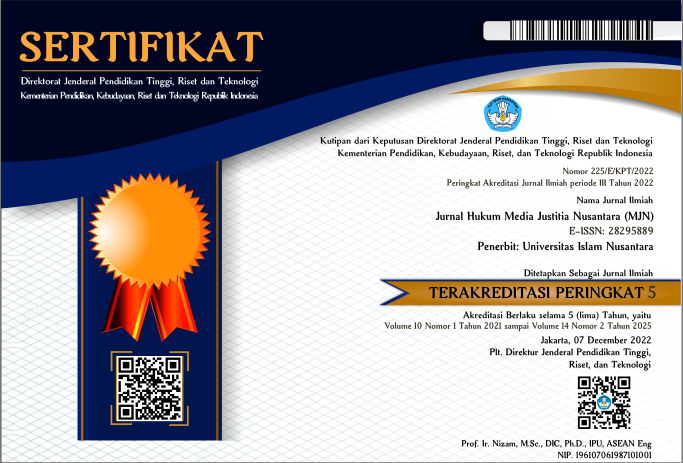Kepastian Hukum Terhadap Perlindungan Tenaga Kerja Alih Daya (Outsourcing) Dikaitkan Dengan Habis Masa Kontrak Kerja Pasca Putusan Mahkamah Konstitusi No.27/PUU-IX/2011 dan Putusan No.7/PUU-XII/2014
DOI:
https://doi.org/10.30999/mjn.v7i2.531Abstract
Legalization of outsourcing based on Law Number 13 of 2003 concerning Manpower caused controversy. Parties who disagree, especially Labor and Trade Unions, consider the outsourcing system to be a form of modern capitalism. The concept of outsourcing in the employment system in Indonesia is a policy of labor market flexibility that will improve the investment climate, open the expansion of employment opportunities in the formal sector and reduce poverty. The author will examine how legal certainty for the protection of outsourcing workers after the contract period ends and how forms of legal protection for outsourcing workers when the contract period ends. The research method is descriptive analytical, which describes various applicable laws and regulations related to legal theories and the practice of implementing positive laws related to the problems to be studied. The approach method used is normative juridical (doctrinal), which is a law that is conceptualized as what is written in legislation. The research was conducted through a single stage of library research and the techniques used in data collection, namely research on documents relating to the problem being studied. Secondary data in analytical descriptive research with normative juridical approach were analyzed qualitatively.The study found that legal certainty regarding the protection of outsourcing workers after the Constitutional Court's decision regarding the expiration of the contract period was given a guarantee of welfare and workers' rights in accordance with Law No. 13 of 2003. Legal Protection for Workers in the PKWT work system and outsourcing whose contract expires is a guarantee of Legal Protection, namely the appointment of permanent employees or PKWTT system work agreements.













